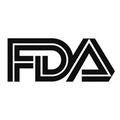FDA Accepts BLA for Bevacizumab Biosimilar in Solid Tumors and Sets Action Date
A Biologics License Application was accepted by the FDA for BAT1706, a monoclonal antibody and proposed biosimilar of bevacizumab, which will be considered for the treatment of multiple solid tumor indications.

A Biologics License Application (BLA) was accepted by the FDA for BAT1706, a monoclonal antibody and proposed biosimilar of bevacizumab (Avastin), which will be considered for the treatment of multiple solid tumor indications, according to a press release issued by the developer, Bio-Thera Solutions.1
The indications under consideration with the FDA for BAT1706 include treatment in combination with fluorouracil-based chemotherapy in patients with metastatic colorectal cancer, and as treatment of patients with metastatic renal cell carcinoma in combination with interferon alfa. As monotherapy, the agent is being considered for the frontline treatment for patients with nonsquamous non–small cell lung cancer (NSCLC), as well as for the treatment of recurrent glioblastoma and persistent, recurrent, or metastatic cervical cancer.
The Biosimilar User Fee Act target action date for BAT1706 has been set to November 27, 2021.
"The FDA’s acceptance of our BLA is a significant achievement that brings Bio-Thera closer to providing cancer patients in the USA with a high-quality, low-cost treatment option," said Shengfeng Li, PhD, founder, and CEO, Bio-Thera Solutions, in a statement.
Data supporting the use of BAT1706 is from preclinical comparisons studies, comparison studies on the clinical pharmacokinetics of the drug, as well as from an international multi-center phase 3 clinical comparison study (NCT03329911).
In February of 2020, it was announced that the phase 3 study met its primary end point by achieving a similar overall response rate compared with bevacizumab.2 The study is actively recruiting up to 632 patients with advanced nonsquamous NSCLC. The study is also evaluating progression-free survival, overall survival, disease control rate, ORR from week 6 to 8, and duration of response as secondary end points.
Patients are eligible to enroll given they have a confirmed diagnosis of stage IV nonsquamous NSCLC or recurrent disease who have had no prior systemic therapy for metastatic disease. For all patients, tumors cannot have activating EGFR or ALK mutations at the time of enrollment. Patients are also required to have measurable disease per RECIST version 1.1 criteria, an ECOG performance status of 0 or 1, and a life expectancy of at least 3 months.
Any patients diagnosed with small cell lung cancer, mixed predominant squamous cell carcinoma of the lung, or NSCLC not otherwise specified are ineligible for the study. At baseline, investigators judge whether patients have tumor cavitation, tumor invading into large blood vessels, or a tumor close to large vessels that can increase the risk of bleeding. Such patients are ineligible to join the study. In terms of prior therapy, the study excluded individuals who have received monoclonal antibodies or small molecule inhibitors against VEGF or VEGFR, systemic anticancer therapy, or radiotherapy for locally advanced nonsquamous NSCLC less than 6 months prior to screening. Finally, patients with a prior malignancy other than NSCLC with 5 years of the start of the study were ineligible to enroll.
In addition to being considered for approval in the United States, Li stated that the agent is under consideration globally.1 "Regulatory filings for BAT1706 have now been accepted by the China National Medical Products Administration (NMPA), European Medicines Agency (EMA), and FDA, demonstrating Bio-Thera’s commitment to developing BAT1706 to global standards so that BAT1706 can be made available to the global cancer patient community."
References:
1. Bio-Thera Solutions announces FDA accepts Biologics License Application for BAT1706, a proposed biosimilar to Avastin®. News release. Bio-Thera Solutions. January 28, 2021. Accessed January 29, 2021. https://bit.ly/3ah7etA
2. Bio-Thera Solutions announces positive top-line results for BAT1706, A proposed Biosimilar to Avastin®. News release. Bio-Thera Solutions. February 3, 2020. Accessed January 29, 2021. https://bwnews.pr/3coviO6
Gasparetto Explains Rationale for Quadruplet Front Line in Transplant-Ineligible Myeloma
February 22nd 2025In a Community Case Forum in partnership with the North Carolina Oncology Association, Cristina Gasparetto, MD, discussed the CEPHEUS, IMROZ, and BENEFIT trials of treatment for transplant-ineligible newly diagnosed multiple myeloma.
Read More